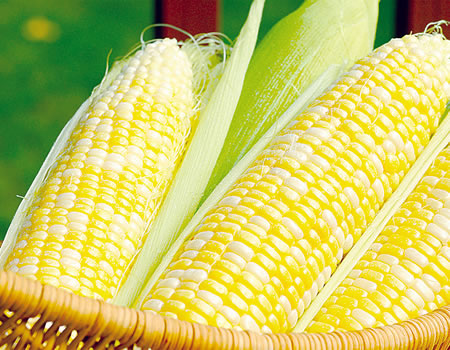
With the rainy season comes malaria. But not to worry, warm tea made from husk maize or corn is a malarial remedy the Ibibio tribe have used to treat malaria for ages.
In the new study, researchers found it could serve both for the prevention and treatment of malaria in a dose-dependent fashion, confirming the antimalarial potential of its extract.
In the study, the researchers found its husk extract exerted significant antimalarial activity against Plasmodium berghei infection in suppressive, prophylactive(prevention) and curative tests.
The extract of maize husks also inhibits the growth of chloroquine sensitive and resistant strains of P. Falciparum under laboratory conditions.
Malaria is one of the most important tropical diseases and the greatest cause of hospitalisation and death among children below age of five years.
The World Health Organisation (WHO) reported that there were an estimated 246 million malaria cases distributed among 3.3 billion people at risk in 2006, causing at least a million deaths. These were mostly children under five years.
Besides corn’s nutritive values, its grains, leaves, corn silks, stalk, and inflorescence are used in ethnomedicine for the treatment of several ailments.
The corn silk is used as an antidiabetic or diuretic, and decoction of the silk is consumed for the treatment of urinary troubles and gallstones.
The ash of the cob is used for the treatment of cough and inflammatory diseases. The husks are used for the treatment of pains and arthritis.
For the study, ethanol extract of the dried husks was administered to mice. Thirty Swiss albino mice of either sex divided into five groups of six mice each per model were used for these experiments. The mice were infected with malaria parasite. The extract and artesunate were administered once daily for five days.
The researchers found that the extract showed a dose-dependent chemosuppressive effect on malaria-causing germs, but the effect of the extract was weak compared to that of the standard drug, artesunate.
Tests of the extract indicated that they contain some chemical substances like Rutin with antimalarial properties
The 2017 study in the journal, Pharmaceutical Biology indicated that “There were reductions in the percentage parasitaemia of the extract/artesunate-treated groups compared to that of the control in which prominent increases were recorded.
“The fact that the extract and fractions were active against the chloroquine-resistant strain of P. falciparum implies that the husk extract can be an effective agent against chloroquine resistant malaria.
“These findings further lay credence to the use of the husk of Zea mays in the treatment of malaria traditionally.”
Many herbal combinations are also used in treating malaria. For instance, in African folklore medicine, the hot infusion from the boiled green leaves of pawpaw combined with leaves of neem (Dongoyaro), Cymbopogon citratus (lemon grass), guava and stem bark of Alstonia boonei is drank as one wine glass full three times daily in the treatment of malaria.
The extracted product apart from being used in malaria therapy is used to treat amoebicide, as a worm expeller and as a carminative in local villages and towns.
Previously, researchers found that under laboratory conditions, extracts of bitter leaf made from water and ethanol showed moderate antimalarial activity and a negligible level of toxicity in the test animals–rats.
The study entitled “In vitro Antimalarial Activity of the Extracts of Vernonia Amygdalina” was documented in the 2011 edition of the Science World Journal.
Of the two extracts tested, the ethanol extract of bitter leave showed the highest antimalarial activity of 78.1 per cent. The water extract had the malaria parasite growth inhibition of 74.0 per cent.
Previously, the antimalarial activity of bitter leaf against resistant P. berghei had been reported by scientists in the British Journal of Biomedical Science. In their findings, leaf extract produced 67 per cent suppression of malaria –causing germ in a four-day test.
In addition, another study pointing to the potential use of bitter leaf in formulating a malaria drug in years to come, revealed its potential also in reversing chloroquine resistance when used as an adjuvant with chloroquine.
The 2008 study, documented in the journal African Health Sciences, while validating the traditional use of bitter leaf in the treatment of malaria in Nigeria reported that the aqueous extract of the plant enhance the antimalarial effects of chloroquine in mice infected with chloroquine resistant and sensitive P. berghei strains.
Pharmacological studies have demonstrated under laboratory conditions antimalarial effects of extracts from many plants. These include neem, Morinda lucida (brimstone tree, oruwo in Yoruba and eze-ogu in Igbo), African mahogany, Tithonia diversifolia (Wild Sunflower; ogbo or Agbale in Yoruba), Momordica balsamina (Balsam pear or ejinrin in Yoruba) and Picralima nitida (abere in Yoruba).
WATCH TOP VIDEOS FROM NIGERIAN TRIBUNE TV
- Relationship Hangout: Public vs Private Proposals – Which Truly Wins in Love?
- “No” Is a Complete Sentence: Why You Should Stop Feeling Guilty
- Relationship Hangout: Friendship Talk 2025 – How to Be a Good Friend & Big Questions on Friendship
- Police Overpower Armed Robbers in Ibadan After Fierce Struggle





